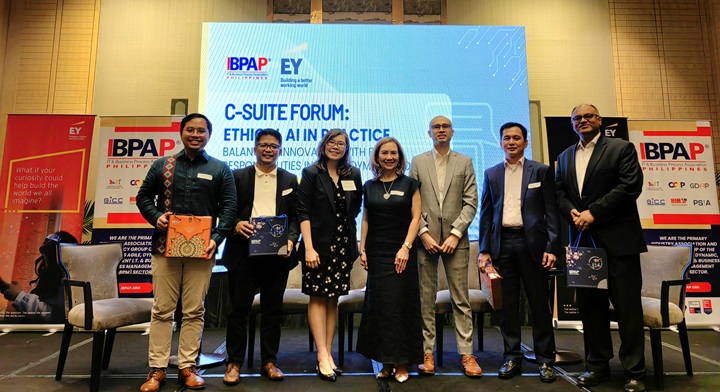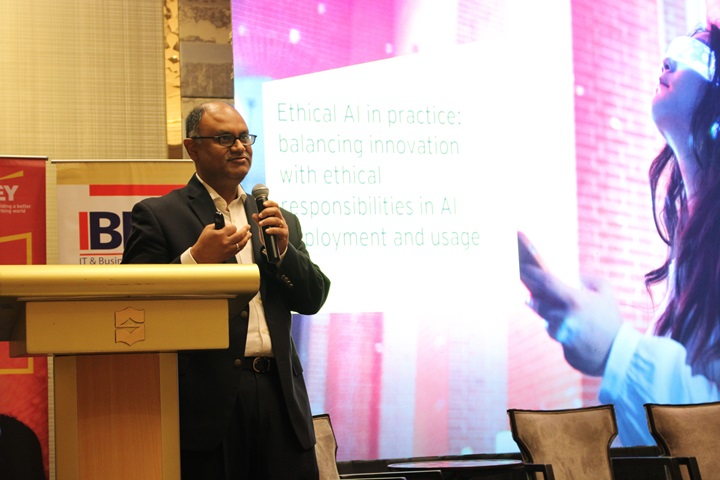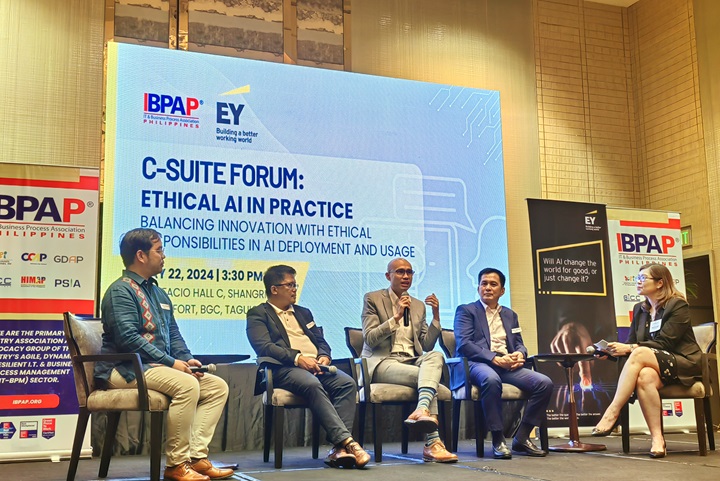
Industry leaders emphasized the importance of human-centric artificial intelligence (AI) at a recent EY Global Delivery Services (EY GDS) Philippines C-suite forum, co-hosted with the IT and Business Process Association of the Philippines (IBPAP). The theme of the event was “Ethical AI in practice: balancing innovation with ethical responsibilities in AI deployment and usage.”
Generative AI, which became increasingly popular in 2023, automates content creation, data analysis and decision-making, benefiting businesses economically. However, it raises concerns about privacy, ownership and misinformation due to possible inaccuracies or biases.
Seizing the power to change everything
In his keynote speech, EY GDS AI Leader Rahul Bhattacharya said that it isn’t AI that is necessarily “bad” or “irresponsible” — rather, as with most emerging technologies, it is a matter of how “good actors” use it responsibly.

Bhattacharya highlighted that the ethical use of AI hinges on user intent, not the technology itself. He stressed the transformative potential of AI for individuals and companies when used responsibly. He also advocated a human-focused approach to AI, referencing to the EY organization’s responsible AI framework – which emphasizes explainability, transparency and accountability, along with compliance, security and data protection.
“What matters today is what you are doing in order to harness the power of AI for yourselves and your clients, as long as you are doing it in an ethical and responsible manner,” Bhattacharya added.
Putting humans at the front and center of AI
During the forum’s panel discussion, EY GDS Philippines Consulting Leader Raymond Garret Go, SGV & Co. Technology Consulting Principal Randall Antonio, University of Santo Tomas Professor Arturo Patungan Jr. and UP College of Law’s Atty. Angelo Santiago discussed the advantages and repercussions of using generative AI in their respective fields.

“Those are the things that concern us in the academe. I think that would also be your concern because these will be the people who, four or five years from now, will be employed in your industries,” Patungan shared, addressing the industry leaders at the forum.
One way to solve this concern, both in academe and in business, is to put humans “front and center of AI.”
“When you put people and humans at the center, all your decision-making process, all things that you need to do, will have to conform to that belief that it should not hurt people, it should be fair, it should not be biased and anything that is able to be done should be for the benefit of the human, not the machine,” said Antonio.
And in a world where “bad actors” exist, Go affirmed that the ethical use of AI is “a collective responsibility among the government, private institutions, companies, industry associations and even the academe. All of us play a big part in really defining and enforcing the guidelines.”
The panelists concurred that ethical AI usage is a shared responsibility and advocated for decision-making processes that prioritize human wellbeing, fairness and the avoidance of bias so that AI serves people and not machines.


1 Comment
Discover the beauty of naran kaghan tourism with Nawabs Hotels And Resorts. Experience luxurious accommodations, breathtaking scenery, and exceptional hospitality. Our resort ensures a memorable stay amidst the natural splendor of Naran Kaghan, making it your ideal destination for a rejuvenating getaway.